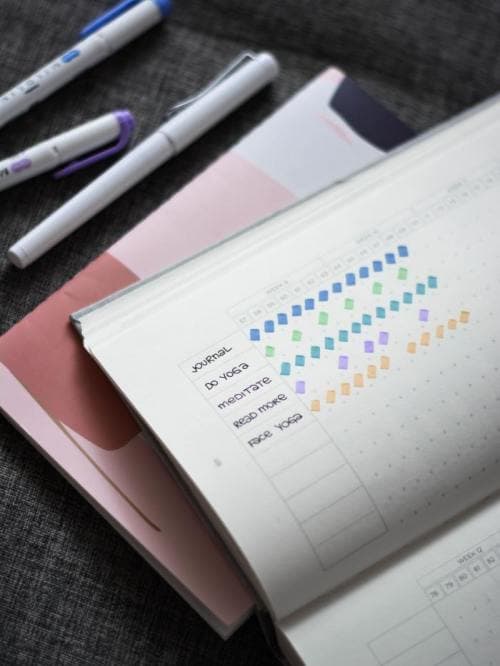How to Start a Daily Journaling Habit.
Developing a daily journaling habit is proven to be easier said than done.
At first glance, the tasks seem simple, open a blank page every day at a specific time, gain inspiration and write. Unfortunately though, it likely won’t be a trivial matter without a plan.
Fortunately, these writing habits have not come naturally to our team and we've needed to build our routines from scratch using the tips listed below.

1. Decide where you will journal
Previously, it was recommended to use a physical journal. But times have changed. Technology has advanced and we now have more sophisticated journaling options.
Unless you want to get craft with bright colors and decorations, a physical journal should never be avoided as it can be lost. Imagine spending years of your life putting together your daily thoughts to create an impressive, and also highly important book of your life. Just to lose it and for it to be gone forever.
With online journals, your writing will be kept safe forever. And not to be biased, but WriteMore offers the best and most powerful online journal on the internet today!
With WriteMore, you can:
have your writing be updated constantly, even as you write
get text and/or email notifications to remind you to write
have reassurance that only your eyes will ever be able to see your entries
track your progress over time with advanced analytics
2. Create a routine
There will certainly be days when you wake up energized, inspired, and excited to do your day's journaling. But what about those days when you’re not?
Forming a routine and devoting yourself to it can help you when the going gets tough. For instance, choosing the same time to journal each day may help your body and mind form a natural routine, which feels essential to your day.
For those who sometimes are forgetful, set daily reminders in your phone so you never miss a day.
At first, forming a routine won’t feel easy. Studies have shown that it can take anywhere from 18 to 254 days to form a new habit, and on average, it takes 66 days for a new habit to become automatic. Therefore whenever you’re feeling tired and unmotivated to write, remember to stick with it as you are just days or weeks away from naturally interacting it into your lifestyle.

3. Start out with prompts
If you’ve been interested in daily journaling, one of the questions you are likely asking yourself is: What will I write about?
Some people love to free-write, which is the act of writing whatever may be on your mind; no guidance or "rules". Others may search online for reflective and thought-provoking prompts that stimulate inspiration.
If you’re struggling to decide what to write about, check out some of these prompts online:
4. Figure out what works and what doesn’t
What is your goal with journaling? Do you want to manage your anger? Become more in touch with your emotions? Relieving stress or anxiety?
Identify your goals and then look back at your journal to evaluate if you achieved what you wanted. Or try journaling about your journaling. Do you feel bored and dread that 15 minutes of writing, or do you look forward to it?
Be mindful of your emotions and how journaling is making you feel. Do you feel energized at the end of a journaling session, or just relief that it’s over?
If journaling is not working for you and bringing you results, then it won’t be easy to maintain your daily journaling habit. Make time to look at what isn’t working and experiment to find what journaling technique works best.
Does journaling in the morning or evening work better for you? Be honest with yourself and make journaling work for your lifestyle.
5. Try writing in new environments each day
Sometimes your greatest inspiration is your environment. There’s nothing quite like writing outside in front of the sunset, or even with a morning cup of coffee as you perch in front of the morning dew.
It's a proven fact that being out in nature induces creativity, and this translates to inspiration, deep reflection, and productive self evaluation and writing.
On days where you feel especially uninspired, try to change your surroundings. Maybe try to write during your lunch break at work. Or even pull out your laptop and journal at night while you enjoy Netflix in the background.
The point is, there is no right or wrong place to write, and try to utilize your environment as a writing tool.

6. Remember it’s okay to miss a day
Lastly, keep in mind that one of the primary purposes of journaling is to have fun. Of course it’s great if you are able to maintain a streak and engage in reflection daily, but if you miss a day it is not the end of the world.
As soon as you start feeling like you have to journal every single day, journaling will no longer be any fun!
Build your writing habit, start today.
Join thousands of writers today and write more.